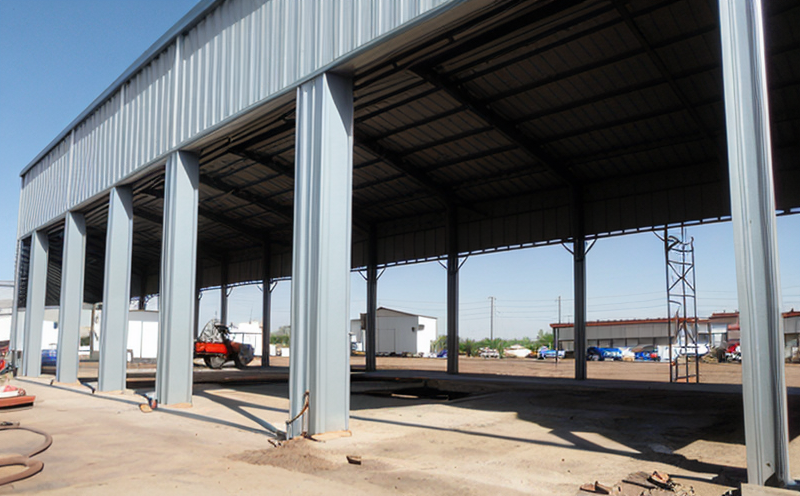ISO 6508 Rockwell Hardness Assessment
The ISO 6508-1 and ISO 6508-2 standards provide a standardized method for measuring the hardness of metals, including steel structures. This assessment is crucial in ensuring that materials meet specific mechanical properties required by design specifications.
The Rockwell hardness test measures the indentation resistance of the material surface under a specified load. It involves pressing an indenter into the sample and then determining the depth of the impression to calculate the hardness value. The test can be performed using different types of indenters (e.g., steel ball, diamond cone) depending on the metal type and thickness.
The Rockwell scale is divided into several scales like HRC, HRB, and HRN, each suitable for specific material ranges. For instance, HRC is used for hard materials such as quenched steel or case-hardened parts, while HRB is more appropriate for softer metals or coatings.
Compliance with ISO 6508 ensures that the testing process adheres to international standards, ensuring accuracy and reliability of results. This is particularly important in sectors where material integrity can affect safety and performance.
The test procedure involves careful specimen preparation to ensure accurate readings. Specimens should be free from defects or surface irregularities that could influence the hardness measurement. Proper calibration and maintenance of equipment are also essential for consistent results.
Why It Matters
The ISO 6508 Rockwell Hardness Assessment is critical in ensuring the quality and reliability of structural components used in buildings and infrastructure projects. Accurate hardness testing helps prevent failures due to material fatigue or unexpected wear, which can lead to costly repairs and safety hazards.
- Ensures Material Integrity: By adhering to ISO standards, manufacturers and constructors can ensure that the steel structures used meet the necessary mechanical properties required for structural integrity.
- Promotes Safety: Hardness testing is a key factor in assessing the durability of materials. Ensuring that materials are within specified hardness ranges helps prevent accidents and injuries caused by structural failures.
- Saves Costs: Early detection of material defects through accurate hardness testing can save on replacement costs and reduce downtime during construction projects.
- Enhances Reputation: Compliance with international standards demonstrates a commitment to quality, which can enhance the reputation of both manufacturers and constructors in the industry.
In summary, ISO 6508 Rockwell Hardness Assessment is essential for maintaining high-quality structural components that are safe, durable, and meet design specifications.
Industry Applications
The ISO 6508 Rockwell Hardness Assessment finds application in various sectors within the building & infrastructure industry. Here are some key areas:
- Steel Fabrication: Ensuring that steel plates and structural components meet the required hardness levels to withstand environmental stresses.
- Coating Quality: Checking the hardness of coatings applied on metal surfaces to ensure they can protect against corrosion over a long period.
- Quality Control: Implementing this test during production processes to monitor and control material properties continuously.
In each application, adherence to ISO 6508 ensures that the materials used are consistent with international standards, thus enhancing the overall quality of construction projects.
Quality and Reliability Assurance
- Calibration: Ensuring that all hardness testing equipment is calibrated regularly to maintain accuracy. This includes checking the calibration of both the indenter and the load.
- Data Recording: Maintaining detailed records of all test results for future reference and audit purposes.
- Environmental Control: Controlling environmental factors such as temperature and humidity, which can affect hardness readings.
- Replication: Repeating tests on multiple specimens to ensure consistent results. This is particularly important in large-scale projects where material consistency across different batches or suppliers is crucial.
By focusing on these aspects, laboratories using ISO 6508 can provide reliable and accurate hardness assessments that contribute to the overall quality assurance of materials used in construction.





